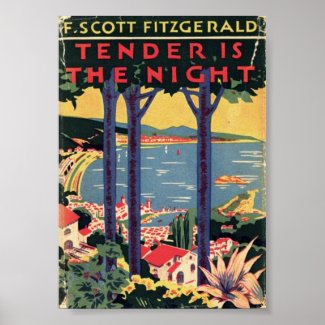Untitled
You appear in my dreams uninvitedFrom out of the Blue, uninvitedYou walk into my thoughts at your willAnd all the while your faceFades from me daily.Old friend.My best friend.There is nothing ahead for us now.Our best yearsOur worst yearsAre behind usExcept fading memories of your face.All those regret.All those failures.I hope you have someone
Richard Oakes and the takeover of Alcatraz Island
This is an incredibly well written and sad passage, isn't it?
“He wanted to recover something, some idea of
himself perhaps, that had gone into loving Daisy. His life had been confused
and disordered since then, but if he could once return to a certain starting
place and go over it all slowly, he could find out what that thing was.” F. Scott Fitzgerald, The Great Gatsby
The most painful thing
“The most painful thing
is losing yourself in the process of loving someone too much, and forgetting
that you are special too”— Ernest Hemingway
Please support The Boston Ballet
We are proud and excited to announce Boston Ballet’s reimagined 2020–2021 season of inspiring dance, featuring emerging and diverse choreographic voices. Your enthusiasm and encouragement have made our return to art-making possible—we are immeasurably grateful for the outpouring of support we have received from our devoted Boston Ballet family.
Our season ahead showcases the creativity and innovation that defines Boston Ballet, pushes the boundaries of our artform, and continues to bring ballet to you, our loyal fans, despite the current constraints.
We begin with BB@yourhome, a virtual series premiering six programs from November 2020–April 2021. These intimate evenings of fresh creations, Boston Ballet signature works, and classical ballet gems will be captured live in-studio and streamed directly to you. You can enjoy a night at the ballet virtually, no matter where you are.
This holiday season, Boston Ballet partners with NBC Boston to bring The Nutcracker to homes across New England—the first time our Nutcracker has ever appeared on television. We’re delighted to keep the magic of this beloved tradition alive and share the joy of the season with a broader audience than ever before. The program, created with previously captured performance footage, will premiere on NBC Boston on Saturday, November 28 at 7pm with encore airings and on-demand viewing opportunities on NECN and Spanish-language Telemundo, plus free access at bostonballet.org for a limited time.
Finally, Boston Ballet plans a return to the stage in May 2021 with live, in-person performances of off the chART (May 6–16) and the female-led ChoreograpHER (May 20–30). These two programs celebrate unique voices from across the art world with a Company premiere from William Forsythe and six world premieres from Stephen Galloway, Tiler Peck, Claudia Schreier, visual artist Shantell Martin, Boston Ballet Principal Dancer Lia Cirio, and Melissa Toogood. These programs have been optimized for the health of patrons and performers, and will be performed in accordance with appropriate state and CDC guidelines.
To join us this season, please subscribe to the BB@yourhome virtual series, or fuel our artists and art-making with a tax-deductible donation. Current 2020–2021 subscribers already have access to the entire season and will receive more information shortly from Lisa McCullough, Director of Audience Services.
We remain committed to supporting our dancers’ professional well-being and growth, with vital safety measures in place. The dancers return to the studio on September 21 and will follow carefully designed health and safety protocols to rehearse the art we plan to share with you this season. We are ready to return to art-making for you.
On behalf of all of us at Boston Ballet, we extend our profound thanks for your eternal support and belief in the necessity of live art. We can’t wait to share this year with you and to be transported together by the power of dance!
It takes a while to find the meaning of what Baldwin said but its pure truth
“The artistic image is not intended to represent the thing itself, but, rather, the reality of the force the thing contains.”
- James Baldwin, Nobody Knows My Name
The greener grass
Where the people with the broadest smiles, have a pillow filled with tears.
And the bravest ones you’ll ever know are crippled by their fears.
It’s filled with lonely people, but their never seen alone.
Where those who lack real shelter, make you feel the most at home.
Maybe their grass is greener, because they’ve painted on its hue.
Just remember from the other side, your grass looks greener too."

























